This week is M.E. Awareness Week and Action for M.E. asked me to write a post as part of their Don’t Ignore M.E. campaign. This M.E. Awareness Month, taking place throughout May, they’re concentrating on the social isolation people with M.E./CFS face.
Today is M.E. Awareness Day, in the middle of M.E. Awareness Week, in the middle of M.E. Awareness Month.
I know that sounds excessive, but there’s just a lot that people need to be made aware of when it comes to M.E.
Explaining the symptoms of M.E. can be enough a challenge, but for me, the symptoms often take a backseat to the impact having M.E. has had on the rest of my life. Work, money, domestic tasks, medical appointments, mental health, the tangled web of our social security system: these secondary symptoms can seem more overwhelming than the actual illness.
This week, Action for M.E. is using its Don’t Ignore M.E. campaign to highlight one of the biggest, and most often ignored, by-products of M.E.: social isolation.
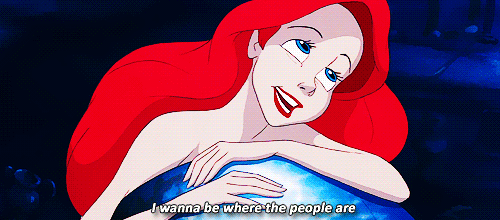
I’ve said before that M.E. is so called because it allows people with no mental energy to still make puns in their blog titles, but M.E. really is a very lonely illness. It is all consuming to the person with it, tightening the boundaries on every aspect of their life in a way that is invisible to other people.
Not only can other people not see the illness, but the sufferer can rarely see other people. The physical energy it takes to travel, or to get dressed, or even to sit in a chair, not to mention the mental energy that conversation takes, means that many people with M.E. simply aren’t able to maintain relationships as they once did and still long to.
I’ve written and deleted and rewritten and rephrased and deleted the following three words but here they are: I am lonely.
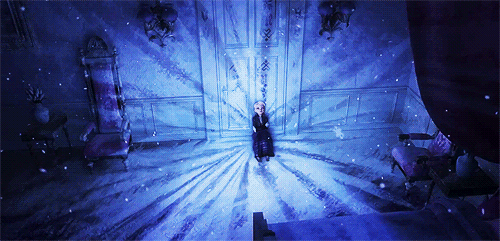
I used to be gregarious, chatty, funny, silly, exuberant. I suppose I still am those things, but I can’t act on those traits as I once did. I now get small, watered-down doses of my old self, islands of activity in a very lonely ocean.
So many M.E. sufferers are abandoned by their friends when they get ill and I am so thankful that I have not had one – not one! – person I care about do that. Friends reading this: you are the best. You are kind and thoughtful and understanding and make what is a very bad situation so much better.

It us.
But I am still aware that my friendships have become woefully imbalanced, my end of the see-saw weighed down by the baggage of my health. My friends must travel to me; I will not necessarily be great company; I rarely attend any of their important events. I can feel such a burden on my friends, so awkward an imposition, that I do not invite them over as much as I would like.
Which is dumb.
Often the toughest thing is not the individual relationships, it’s the events and parties and shows and nights out I can’t attend. I don’t get Fear Of Missing Out. I have Empirical Knowledge Of Missing Out. I know that there are plenty of things I’m not doing that other people are.
I’m the Lady of Shallot, destined to see the world only through the mirror that is the Internet and if I dare to go and experience it for myself, I must pay for it dearly.
Admittedly not by dying in a boat, but all the same. The comparison stands.
I like my own company. I like pottering around the house, burbling happily to myself, finding things in the exact state in which I left them. But as with everything in chronic illness, even one’s favourite things lose their flavour when they become compulsory. An afternoon curled up with a pot of tea, a movie and my knitting used to be a treat. Now it’s an achievement. My solitude has become loneliness.
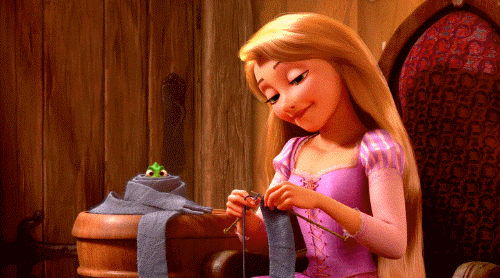
It me.
So, with this raised awareness, here is practical guide to being a good friend to someone with M.E.!
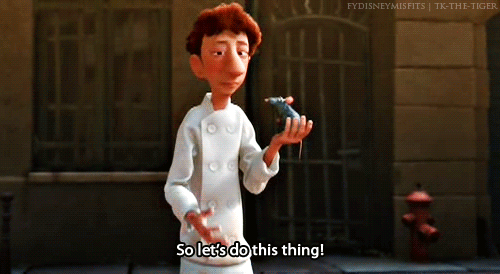
- Always Believe Them. I know that M.E. is a hard illness to see or comprehend if you don’t experience it. When you see your friend, they will be trying hard to be on form. They may not look or seem ill at all. They still are!
- Keep Inviting Them. They might turn down every single one of your invitations to parties or outings. Keep inviting them. They want to go – it’s lack of energy, not enthusiasm and you never know when a good day might coincide with an event.
- Invite Yourself Over. “When can I come and see you? I can do next Tuesday”. Pick a specific date you can do and tell me.
- Be Patient With Replies. Let’s all face it, inboxes are the absolute worst. It’s difficult enough getting round to replying to things without dumb chronic diseases. It might take a bit longer to get our brains and typing fingers in gear.
- Texts, Not Calls. This may just be me, but I find telephone conversations very, very draining. I however LOVE a text or an email or a Facebook message or a Twitter DM or a WhatsApp. You get the picture. Finding your friend’s preferred method of communication means you can more easily maintain that no doubt excellent friendship.
- Offer to Bring Dinner. Every time a friend who is coming over texts and says “What can I bring?” a beautiful flower blooms in the garden that is my heart. Hosting is one thing; cooking another. Insist on making the tea as well. Kettles be heavy.
- Leave. When you’re organising to hang out, plan an arrival time AND an exit time. This is mainly a note to myself who likes to plough on through my afternoon rest time and hang the consequences. The consequences being all the pain.
- Don’t Be Afraid To Ask. Here are things I am very happy to talk about: my health, my diagnoses, how I am feeling at the moment, what my experience with medical professionals has been like, how things are looking for my recovery. Things I am not happy to talk about: nothing because everyone is too scared to talk to me. M.E. can be difficult to grasp because it is complex and fluctuating and I would much rather be asked questions that you worry might be stupid (they aren’t!) than anyone scuttle away.
- Keep In Touch. Pick up your phone right now and text someone you haven’t been in contact with for a while. Not just M.E. sufferers (although text me, I love it, I have great opinions to share) but anyone you love and want to say hello to. Good relationships are important for everyone’s mental and physical health and basically friendship is awesome.
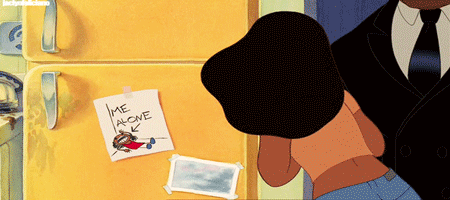
Look guys, it’s the perfect gif for this blog post!
Bonus 10. Watch This. I tried writing this blog post three days ago, remembered this song and was unable to write for laughing.
You can find out more about M.E. at the Action for M.E. website. Want some handy descriptors for M.E. symptoms? Try some Analogies for Brain Fog That Aren’t Just “Brain Fog” and Analogies for Chronic Fatigue That Aren’t Just “Tired All The Time”.
Thank you for your insight into your experience of ME especially when you explained the diluted version of yourself, I am emotional now as I too am very lonely and I feel very much misuderstood.
I am new to this site